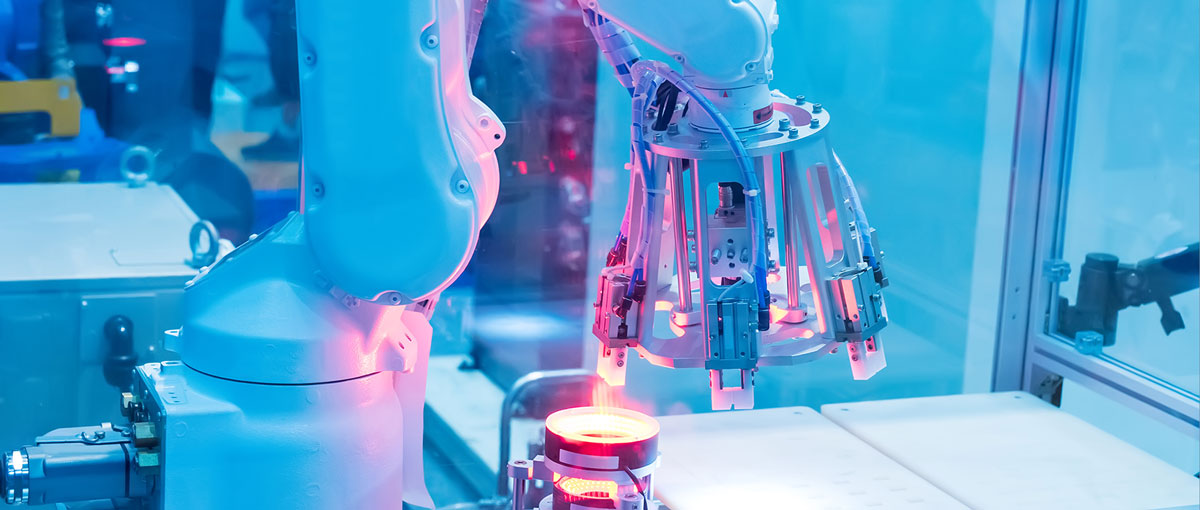industria 4.0 Industry 4.0 manufacturing
Manufacturing 4.0: man at the centre

The future of manufacturing is digital and is shaping up in the Fourth Industrial Revolution. Small and medium enterprises, like big ones, must equip themselves in order not to be left irremediably behind. Yet, in a fashion that is only apparently paradoxical, Industry 4.0 relaunches the centrality of man and themes such as training and social inclusion.
It’s not an exaggeration to say that the world’s future equilibrium depends on the manufacturing sector. Convinced of this is Marco Taisch, Professor of Advanced and Sustainable Manufacturing at the Politecnico di Milano School of Management: «Manufacturing in the future will have a bona fide role of peacekeeper. Thanks to its evolution and its diffusion, we’ll see a decrease in migratory phenomena and an increase in levels of wellbeing. In other words, we’ll enjoy greater social stability, due also to the positive impact manufacturing has on other sectors of the economy; for example, for every euro generated by manufacturing, at least another two are generated in related services. Provided, of course, that the necessary skills are gradually acquired, without which sustainability at all levels is unthinkable».
During World Manufacturing Forum 2018, Marco Taisch, scientific chairman, presented a report with ten recommendations for the future of manufacturing. The issue of skills and training is among those seen as most important: «It’s necessary to invest in people, in addition to technologies. Training has a more than linear impact: without it, technologies can’t deploy their full potential». There’s a caveat, however. Unlike other sectors, manufacturing above all needs specific skills: «Cross-cutting expertise is always useful, but in this case digital and hard skills are more important than in other sectors».
It’s for this reason that there’s a need for change in the world of training. If on one hand analysts concur that the Fourth Industrial Revolution will lead to a negative net impact on employment in the short term, on the other Professor Taisch affirms that this will become positive in the medium-long term: «Provided, however, that there is a change in the way of communicating about manufacturing, a sector still associated with a ‘dirty’ image, that scares off families and pushes young people to pursue courses of study that then won’t find an outlet on the market».
Universities are gearing up. Politecnico di Milano’s School of Management, for example, offers an executive programme in Manufacturing Management that aims to make clear the potential of a future manufacturing system that is new, advanced, intelligent and sustainable and introduce the constituent elements of the modern industrial revolution.
An opportunity to be seized, therefore. Also by adopting a framework of inclusivity and diversity: «For a long time manufacturing was the prerogative of the male gender, for trivial issues of physical strength – continues Taisch –. The 4.0 technologies shift the centre of gravity from muscles to the brain, and thus more towards women. And then I am personally convinced, and with me many other experts, that companies can see a great advantage from the hiring of a diverse workforce in terms of gender, religion, ethnicity. It’s an issue of competitiveness, other than ethics».
On the other hand, fears are not lacking, and often are expressed by companies themselves or by those who are already in the workforce, scared by the idea that a machine can shut them out of the productive process: «In reality it’s not like that. The 4.0 technologies are enabling. They’re not alternative to people, but increase their capabilities and productivity, further strengthening them», explains Professor Taisch.
Another element that leads to diffidence, especially among SMEs, is cybersecurity: «The cloud scares people. Many companies ask us: ‘Where are my data?’. The fear arises first from a lack of understanding, and secondly from an overestimation of the risks that technologies do indeed entail.
Companies lose data much more often because of a faulty backup, than because of the cloud. The truth is that a company that positions itself outside of the Net is destined to disappear in a few years, and that today data should be considered for all purposes as a raw material».





